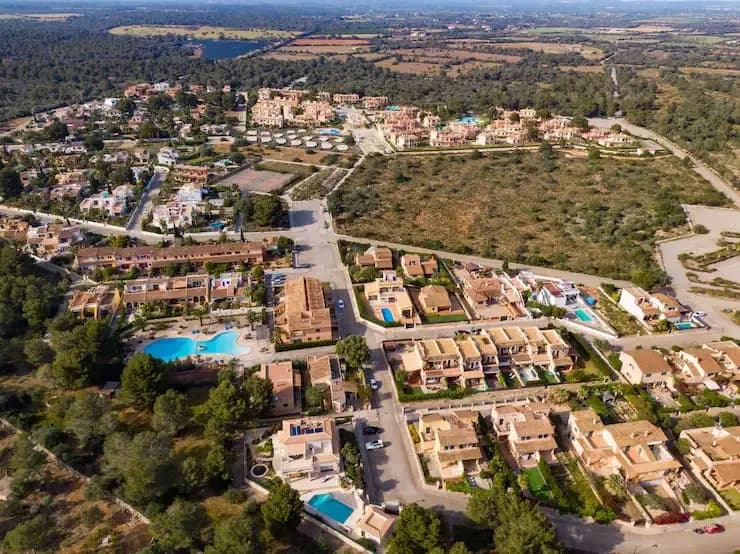Cash flow is the lifeblood of real estate success. Unlike speculative strategies, investing in income-generating properties offers stability and growth. Through Cash Flow Real Estate Investing, you can create steady monthly income, build long-term wealth, and reduce your reliance on market appreciation. Whether you’re new to real estate or scaling your portfolio, this guide explains how to maximize returns through proven cash flow techniques.
Cash Flow Real Estate Investing
Cash Flow Real Estate Investing is the strategy of purchasing properties that produce consistent rental income after covering all operating expenses and loan obligations. Investors use this method to generate passive income while building equity and reducing financial risk.
The focus is not just on appreciation but on monthly surplus income that can be reinvested or saved. This makes Cash Flow Real Estate Investing a powerful long-term wealth-building strategy. Investors typically target cash flow positive properties, which deliver profit right from the start.
For example, a property that collects $2,500 in rent while incurring $1,800 in total expenses offers a $700 monthly cash flow. That surplus supports financial freedom and paves the way for scaling into more cash flow properties for sale.
What is Cash Flow in Real Estate?
Cash flow in real estate refers to the net income generated from a rental property after subtracting all costs. These costs include mortgage payments, property taxes, insurance, maintenance, property management, and utilities.
In other words, it’s the amount of money left in your pocket each month after every bill has been paid.
A positive cash flow property earns more in rent than it costs to own and manage. That extra income can be saved, reinvested, or used for personal expenses. Conversely, negative cash flow means you’re losing money on the investment, something every serious investor tries to avoid.
Positive Cash Flow vs Negative Cash Flow
Understanding the distinction between positive and negative cash flow is essential for real estate success. These two financial outcomes dictate whether your investment supports or drains your finances.
1. Positive Cash Flow
Positive cash flow occurs when a property’s income exceeds its expenses. It’s the goal of every Cash Flow Real Estate Investing strategy. With consistent positive cash flow, investors can grow their portfolios, cover emergencies, and even achieve early retirement.
Owning cash flow positive properties also provides peace of mind. Instead of relying solely on property appreciation, you’re earning tangible monthly profits that reinforce your long-term plan.
2. Negative Cash Flow
Negative cash flow means expenses are higher than rental income. This situation often occurs when a property is overpriced, mismanaged, or located in a low-demand area. Investors who ignore due diligence may find themselves paying out-of-pocket every month, leading to stress and financial setbacks.
Though some investors tolerate temporary losses in hopes of future appreciation, this approach contradicts the core principles of Cash Flow Real Estate Investing.
Why Cash Flow Matters in Real Estate Investing
Cash flow matters because it keeps your real estate business alive. Profit from rental income provides a buffer against market fluctuations and unexpected costs. It also allows you to reinvest without taking on excessive debt.
Without strong cash flow, even well-located properties can become liabilities. This is especially true when scaling. Positive income provides the capital you need to make improvements, grow your portfolio, or diversify into commercial real estate investment opportunities.
When cash flow is strong, your investment becomes an asset. When it’s weak, it becomes a burden.
Key Factors That Impact Real Estate Cash Flow
Many elements influence your cash flow. To make wise investment decisions, you must evaluate each one. Here are the key drivers behind successful Cash Flow Real Estate Investing.
1. Rental Income
The rent you charge is your primary source of income. Higher rent means higher potential cash flow, provided expenses are kept in check. Market research helps you determine fair but profitable pricing for your property.
2. Operating Expenses
These include property taxes, insurance, utilities, repairs, and management fees. Reducing unnecessary expenses without sacrificing quality service can significantly boost your net income.
3. Financing Costs
Your mortgage terms, down payment, and interest rate all impact monthly cash flow. Lower interest rates and fixed-rate loans provide stability and increase profitability.
4. Vacancy Rates
A vacant property generates no income but still incurs expenses. Investing in areas with strong demand and working with effective real estate agents Dubai can reduce vacancy and improve your cash flow.
5. Property Management
Skilled managers ensure timely rent collection, handle maintenance efficiently, and reduce tenant turnover, all of which protect your cash flow. Poor management, on the other hand, erodes profitability.
6. Location
Location determines demand, rental prices, and appreciation potential. Strong rental markets like Dubai are attractive to cash investors for real estate due to favorable conditions and high occupancy rates.
How to Calculate Cash Flow in Real Estate
To determine your monthly cash flow, follow this simple formula:
Monthly Rental Income – Operating Expenses – Mortgage Payment = Net Cash Flow
For example, if you earn $3,000 per month in rent, pay $1,000 in operating expenses, and have a $1,200 mortgage, your monthly cash flow is $800.
This calculation helps you compare different cash flow properties for sale and make decisions based on actual income, not just potential appreciation. It’s a cornerstone of all sound Cash Flow Real Estate Investing plans.
The 1% Rule: A Simple Way to Evaluate Cash Flow
The 1% rule is a quick test to determine whether a rental property might generate positive cash flow. According to the rule, the monthly rent should be at least 1% of the property’s purchase price.
For example, if a home costs $200,000, it should rent for at least $2,000 per month to meet the 1% rule. While this isn’t a guarantee of profit, it’s a fast screening tool to identify potentially strong deals.
This method is especially useful when evaluating multiple listings or unfamiliar markets during the Cash Flow Real Estate Investing process.
5 Tips for Creating Positive Cash Flow
Want to ensure every property you buy becomes a profitable asset? These five practical tips will help you create and maintain cash flow positive properties.
1. Buy Below Market Value
Buying properties at a discount provides instant equity and increases your profit margin. Look for distressed sales, off-market deals, or motivated sellers.
2. Target High-Demand Areas
Location influences both rent prices and occupancy rates. Focus on neighborhoods with population growth, job opportunities, and rental demand to reduce vacancies.
3. Improve the Property Strategically
Renovations like updated kitchens, new flooring, or energy-efficient appliances can justify higher rents without overspending. These improvements increase both rentability and cash flow.
4. Reduce Unnecessary Expenses
Negotiate better rates for insurance, self-manage if practical, and keep maintenance under control. Cutting avoidable costs boosts monthly profit.
5. Use Favorable Financing
Shop around for low-interest loans, use higher down payments to lower monthly obligations, and refinance when the market allows. These tactics can dramatically improve your cash flow outlook.
How to Increase Cash Flow From Your Properties
If you’re already invested and want to boost income, consider these strategies:
- Increase rent gradually to match market rates.
- Add premium services like parking, laundry, or pet-friendly features.
- Switch to short-term rentals where legally allowed.
- Improve tenant screening to reduce turnover.
- Refinance to lower your mortgage payment.
By applying these tactics, you can convert a decent rental into a positive cash flow property and optimize your Cash Flow Real Estate Investing strategy.
The Risks of Negative Cash Flow in Real Estate
While real estate is generally profitable, negative cash flow can be a serious issue. Risks include:
- Paying out of pocket to cover monthly losses
- Difficulty securing future loans due to poor performance
- Being forced to sell during unfavorable market conditions
- Increased financial stress and reduced ROI
These risks are why Cash Flow Real Estate Investing emphasizes property selection, location, and expense management. With the right research and planning, negative cash flow can usually be avoided.
Sample Cash Flow Statement for Real Estate
Let’s walk through a hypothetical example. Suppose you own a single-family home that rents for $2,800 per month.
Your monthly expenses might include:
- $300 for property taxes
- $100 for insurance
- $200 for maintenance and repairs
- $200 for management fees
- $1,500 for mortgage principal and interest
After all expenses, you’re left with $500 in monthly cash flow. That’s a healthy return on investment, typical of well-managed residential investment projects.
Grow Your Passive Income with Roofs & Roots!
Ready to build wealth with Cash Flow Real Estate Investing? Roofs & Roots is your trusted partner in identifying profitable opportunities and managing them with expert care.
They specialize in smart property investments, offering access to vetted listings, reliable data, and tailored support for beginners and seasoned investors alike. Whether you’re looking to invest in Dubai real estate or expand locally, Roofs & Roots provides guidance every step of the way.
Start growing your passive income today. Visit www.roofsnroots.com and unlock the power of positive cash flow.
FAQs
How to cash flow in real estate?
Focus on buying properties where rental income exceeds all expenses. Analyze deals thoroughly, buy in strong rental markets, and control operating costs. Strong cash flow is achieved by strategic investing and property management.
What is the 2% rule?
The 2% rule suggests that monthly rent should equal 2% of the purchase price. For example, a $150,000 home should rent for $3,000. It’s a stricter version of the 1% rule, often used by cash investors for real estate targeting high-yield returns.
What is a good cash flow ratio in real estate?
A healthy cash flow ratio typically means earning 8% to 12% annual return on investment. The higher the ratio, the better. This ensures sustainability, especially in volatile markets.
What is the best investment for cash flow?
Multifamily homes, duplexes, and commercial real estate investment properties often produce high yields. In international markets, property investment in Dubai is especially attractive due to strong rental demand and investor-friendly regulations.






